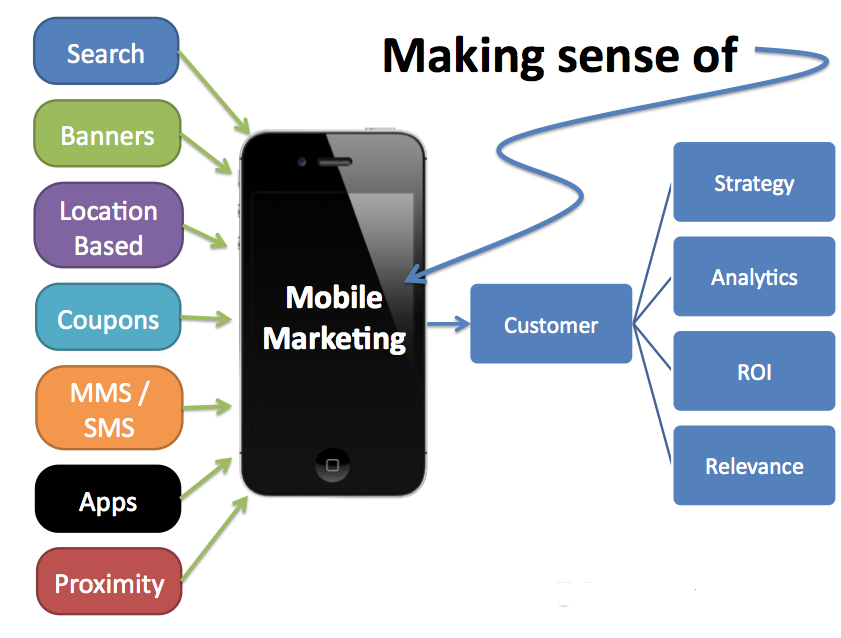In today’s fast-paced digital age, mobile devices have become an integral part of our lives. The ubiquity of smartphones and tablets has transformed the way businesses engage with their customers. Mobile marketing, a dynamic and evolving strategy, empowers businesses to connect with their target audience anytime, anywhere.
This article explores the significance of mobile marketing, its strategies, benefits, and the future of this rapidly growing field.
Table of Contents
ToggleThe Rise of Mobile Marketing
The rise of mobile marketing is closely intertwined with the exponential growth of mobile device usage. With more than 3.8 billion smartphone users worldwide, according to Statista, businesses have recognized the immense potential of this platform for customer engagement.

Unlike traditional marketing methods, which rely heavily on static media, mobile marketing takes advantage of the interactivity and personalization offered by mobile devices.
Strategies
- Responsive Web Design: To effectively reach customers on the go, businesses must ensure their websites are optimized for mobile viewing. Responsive web design ensures that websites adapt seamlessly to various screen sizes and orientations, providing users with a smooth browsing experience.
- Mobile Apps: Developing a dedicated mobile app can significantly enhance a business’s mobile marketing efforts. Apps offer personalized experiences, enabling businesses to send push notifications, offer exclusive deals, and gather valuable user data.
- SMS Marketing: Short Message Service (SMS) marketing involves sending promotional messages to customers’ mobile phones. This direct approach can be highly effective for time-sensitive offers and promotions.
- Location-Based Marketing: Leveraging the GPS capabilities of smartphones, businesses can send location-specific offers to customers when they are near a physical store. This strategy can drive foot traffic and increase sales.
- Mobile-Friendly Content: Creating mobile-friendly content is crucial. Videos, images, and written content should be optimized for mobile consumption to ensure a positive user experience.
- Social Media Optimization: Social media platforms are predominantly accessed through mobile devices. Optimizing content for mobile consumption on platforms like Facebook, Instagram, and Twitter is essential for effective mobile marketing.

Benefits
- Wider Reach: Mobile devices have a global reach, allowing businesses to connect with a vast audience across geographical boundaries.
- Personalization: Mobile marketing enables businesses to gather user data, such as preferences and behaviours, which can be used to tailor marketing messages and offers to individual customers.
- Higher Engagement: Mobile devices foster higher engagement due to their intimate and interactive nature. Customers are more likely to interact with content on their mobile devices than on traditional media.
- Instant Communication: Mobile marketing allows for real-time communication with customers. Push notifications, SMS alerts, and in-app messages can deliver information instantly.
- Cost-Effectiveness: Compared to traditional advertising methods, this can be more cost-effective. Social media platforms and targeted advertisements reduce wastage and maximize ROI.
- Data Analytics: It generates valuable data that can be analyzed to refine marketing strategies. Insights into user behaviour, preferences, and response rates enable businesses to make informed decisions.

The Future of Mobile Marketing
As technology continues to advance, the future of mobile marketing holds even greater promise. Here are some trends that are likely to shape the landscape:
- Augmented Reality (AR) and Virtual Reality (VR): AR and VR technologies are becoming more integrated into mobile experiences. Businesses can use AR for interactive product demonstrations, while VR can offer immersive brand experiences.
- Voice Search Optimization: With the rise of virtual assistants like Siri, Alexa, and Google Assistant, optimizing content for voice search will become increasingly important.
- 5G Integration: The rollout of 5G networks will lead to faster internet speeds and improved connectivity. This will enable richer multimedia experiences and real-time interactions, enhancing mobile marketing efforts.
- Artificial Intelligence (AI): AI-powered chatbots and virtual assistants will provide personalized customer support and streamline user interactions.
- Privacy and Security: As data privacy concerns grow, businesses must prioritize user data protection. Striking a balance between personalization and privacy will be a key challenge.

Conclusion
Mobile marketing has revolutionized the way businesses engage with their customers. Its ability to reach customers on the go, coupled with personalization and interactivity, makes it a powerful tool for modern marketing strategies.
By embracing marketing and staying attuned to emerging trends, businesses can forge deeper connections with their audience and drive sustainable growth in the dynamic digital landscape.

